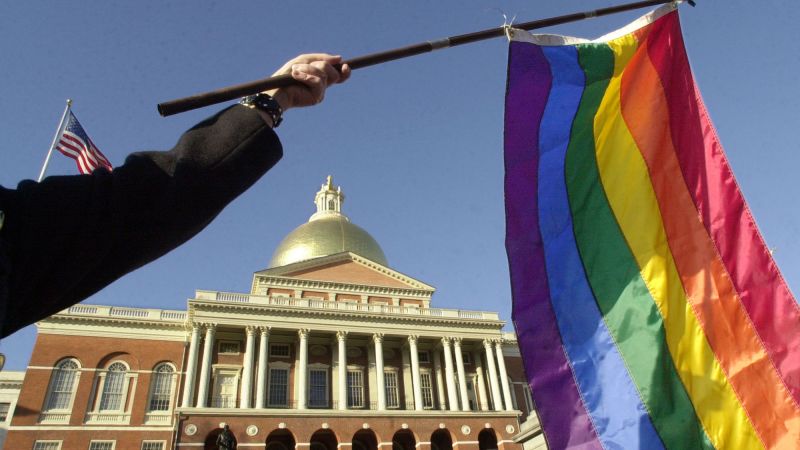Twenty years ago, same-sex marriage was a contentious issue in the United States, leading to division and driving voter turnout. In 2004, the vast majority of Americans opposed same-sex marriage, but the first same-sex couples were able to marry in Massachusetts after a court decision. Then-President George W. Bush actively pushed to amend the US Constitution to protect marriage, resulting in backlash and voters in 11 states codifying marriage between a man and a woman in their constitutions. This opposition to marriage equality played a role in Ohio, where an overwhelming majority approved a marriage amendment that may have helped Bush secure reelection.
The 2015 Supreme Court case, Obergefell v. Hodges, ultimately granted a right to same-sex marriage in the US. In 2004, only a quarter of American voters supported marriage rights for same-sex couples, but by 2015 public opinion was rapidly shifting. Barack Obama, who initially opposed same-sex marriage, changed his tune to support same-sex unions in 2012. This shift in public opinion saw the US moving from a winning candidate exploiting opposition to same-sex marriage (Bush in 2004) to a winning candidate (Obama in 2012) supporting marriage equality.
In 2022, Senator Mitt Romney, who Obama beat in 2012, voted in favor of protecting same-sex unions in the event of a Supreme Court decision to strip away the national right to marry. However, the current Supreme Court is more conservative than in 2015, and the possibility of overturning the Obergefell decision is uncertain. The Respect for Marriage Act that Romney supported does not guarantee a national right to same-sex marriage if the Supreme Court changes course, but it requires states to honor marriages conducted legally in other states.
Public opinion on same-sex marriage has significantly shifted over the last 20 years. More Americans, over two-thirds, now support same-sex unions, with variations based on state protections. Republican pollster Alex Lundry attributes this shift to a variety of factors, including an increase in LGBTQ identification, younger generations more open to LGBTQ identities, increased representation in media and government, and a rise in same-sex couples and marriages. Research also shows that warnings about same-sex marriage harming traditional marriage have not materialized.
Unlike same-sex marriage, support for abortion rights has remained positive for decades. Another issue showing a significant pivot in public opinion is the legalization of marijuana. President Joe Biden’s move to reclassify cannabis from a Schedule I to a Schedule III drug reflects this changing viewpoint. The fight for LGBTQ rights continues, with transgender rights being a current focus in state legislatures. As social issues evolve, public opinion and political strategies also continue to change.


